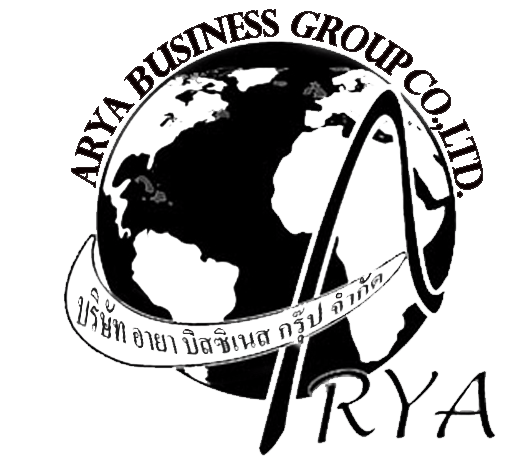
Investment
What is the benefit of Property Investments in Phuket?
Phuket is one of the most exciting markets for property investments. It always has been, and not only because of its beautiful nature and landscape but also because it’s one of the most visited holiday destinations in Southeast Asia. It’s always been popular amongst Australians, Europeans, and Americans, and over the past 10 years, the island has become very popular amongst Switzerland, Swedish, France, Russia, and Chinese tourists.
At a time of year when many property sales are taking place in hotspot investment destinations such as Phuket, it seems like now is an appropriate time to recap the types of legitimate investment for foreigners interested in property in Thailand, and to note that there are some very straightforward methods of avoiding complicated and cumbersome transactions.
Aside from land title due diligence in relation to the project you are planning to invest in, it is essential to scrutinize the method by which you purchase a property.
Many investors in recent years have shied away from what was once a notoriously encouraged method of “acquiring” a real estate interest in Thailand: setting up a Thai company. In fact, the Land Code in Thailand prohibits foreigners from circumventing the laws protecting the land by stating that direct or indirect acquisition of land is generally prohibited.
This means that if the only reason a foreigner sets up a company is to circumvent the Land Code, then there is a danger their transaction could, in very extreme circumstances, be scrutinized, and they may be required to dispose of their property and pay penalties. There is also the question in any Thai company, not just property-related companies, as to whether all shareholders are genuine shareholders and not “nominee” or “fake” shareholders, the practice of which is illegal.
This, of course, leaves the general option of purchasing a condominium interest or leasing property for a long-registered term, the maximum registrable term of which is 30 years. Many foreigners do not wish to purchase condominium properties, especially in resort areas such as Phuket, Koh Samui, Pattaya, or Koh Chang, where villa and lifestyle acquisitions are preferred.
So, if Thai companies are not a generally viable option, and condominiums aren’t appropriate as an investment, surely leasing a property should be a safe option Of course, it is, provided you follow some simple rules and understand the nature of the investment you are making and further ensure that you are properly advised of any risk in relation to the acquisition.
A straightforward limited 30-year registered lease in Thailand is enforceable between the lessor and lessee. If individuals are involved, and for example, the lessee dies, the lease could be scrutinized in relation to whether the lease interest may pass to a successor.
One of the elements of ensuring the lease properly addresses this issue is to include a successor clause in the lease. Another way is to ensure that only companies enter into the lease because companies don’t die, although they can become insolvent. It should be noted that some of the most expensive property in Thailand is only available for leasehold. In particular, properties developed on Crown Property Bureau land in Bangkok are developed and sold on a leasehold basis, not just to foreigners, but to Thais. This means that Thais rely upon the security of the lease and sometimes do so in relation to high-price-point luxury properties. This is absolute evidence that leases can and are often relied upon in Thailand by foreigners and Thai alike.
As far as straight leases are concerned, they are very straightforward.
Some investors and some developers prefer to contemplate the existence of investment beyond the 30-year period by way of a pre-agreed “renewal”. The contemplation of this is generally legal, but the execution of it must also be legal.
The restriction on this approach is that any document referring to a term beyond 30 years must not contravene the law restricting the term of a registered lease – 30 years – and further, the parties must be aware that an agreement to agree to renew a lease will be a private agreement between the parties and subject to contract law, namely under the regulatory regime of Thailand’s Civil and Commercial Code.
Under this code, provided an agreement is not contrary to law, the parties are free to agree to the terms as they wish. When they do so, care must be taken to examine if what is being promised is enforceable now, and also in the future.
There are some further matters to be considered, such as what taxes may be payable in 30 years’ time for a lease renewal, and what the actual minimum assessed value of the rental must be. These questions can be settled in a contractual agreement under which the parties assess the reliability of each other in terms of compliance.
Beyond a simple lease sale, there are also projects in Thailand where lessees are offered a stake in a company that has either a direct or indirect interest in the landowning company that owns the land at a real estate project. As in all such matters, this cannot simply be a rushed, cobbled-together structure. To minimize legal risks in this type of structure requires planning to address and ensure that in a non-exhaustive list:
(a) Freeholder
(b) Leases hold + Company registered,
(C) Shareholder (investor)
Phuket is one of the most exciting markets for property investments. It always has been, and not only because of its beautiful nature and landscape but also because it’s one of the most visited holiday destinations in Southeast Asia. It’s always been popular amongst Australians, Europeans, and Americans, and over the past 10 years, the island has become very popular amongst Switzerland, Swedish, France, Russia, and Chinese tourists.
A large percentage of the visitors are interested in owning a holiday home in Phuket. That demand has brought a decent amount of supply of holiday homes over the past ten years, and more and more attractive properties are still being built. That supply has also increased the demand on the developers on the island to come up with an attractive return on investment opportunities through guaranteed rental returns in order to provide a handsome capital gain for the buyers.
Arya Business Group and “Howsai property development” came up with the great idea of having an agreement with international hotel chains to run their projects like a hotel when they’re completed. This increases the liability of the project as well as provides a good rental return guarantee to the investors.
That gives the opportunity to the hotel management to rent the units out as advertised.
We’ve put a couple of good deals here to give you an idea about the rental return possibilities through owning property investments in Phuket




